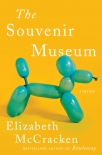An American Tragedy, Theodore Dreiser [best business books of all time txt] 📗

- Author: Theodore Dreiser
Book online «An American Tragedy, Theodore Dreiser [best business books of all time txt] 📗». Author Theodore Dreiser
But directly before him, at another table in the same square, but more directly below the raised platform at the west end, as he could see now, were Mason and several men whom he seemed to recollect—Earl Newcomb and Burton Burleigh and yet another man whom he had never seen before, all four turning and gazing at him as he came.
And about this inner group, an outer circle of men and women writers and sketch artists.
And then, after a time, recalling Belknap’s advice, he managed to straighten up and with an air of studied ease and courage—which was belied to a certain extent by his strained, pale face and somewhat hazy stare—look at the writers and artists who were either studying or sketching him, and even to whisper: “Quite a full house, eh?” But just then, and before he could say anything more, a resounding whack, whack, from somewhere. And then a voice: “Order in the Court! His Honor, the Court! Everybody please rise!” And as suddenly the whispering and stirring audience growing completely silent. And then, through a door to the south of the dais, a large urbane and florid and smooth-faced man, who in an ample black gown, walked swiftly to the large chair immediately behind the desk, and after looking steadily upon all before him, but without appearing to see any one of them, seated himself. Whereupon everyone assembled in the courtroom sat down.
And then to the left, yet below the judge, at a smaller desk, a smaller and older individual standing and calling, “Oyez! Oyez! All persons having business before the honorable, the Supreme Court of the State of New York, County of Cataraqui, draw near and give attention. This court is now in session!”
And after that this same individual again rising and beginning: “The State of New York against Clyde Griffiths.” Then Mason, rising and standing before his table, at once announced: “The People are ready.” Whereupon Belknap arose, and in a courtly and affable manner, stated: “The defendant is ready.”
Then the same clerk reached into a square box that was before him, and drawing forth a piece of paper, called “Simeon Dinsmore,” whereupon a little, hunched and brown-suited man, with claw-like hands, and a ferret-like face, immediately scuttled to the jury box and was seated. And once there he was approached by Mason, who, in a brisk manner—his flat-nosed face looking most aggressive and his strong voice reaching to the uttermost corners of the court, began to inquire as to his age, his business, whether he was single or married, how many children he had, whether he believed or did not believe in capital punishment. The latter question as Clyde at once noted seemed to stir in him something akin to resentment or suppressed emotion of some kind, for at once and with emphasis, he answered: “I most certainly do—for some people”—a reply which caused Mason to smile slightly and Jephson to turn and look toward Belknap, who mumbled sarcastically: “And they talk about the possibility of a fair trial here.” But at the same time Mason feeling that this very honest, if all too convinced farmer, was a little too emphatic in his beliefs, saying: “With the consent of the Court, the People will excuse the talesman.” And Belknap, after an inquiring glance from the Judge, nodding his agreement, at which the prospective juror was excused.
And the clerk, immediately drawing out of the box a second slip of paper, and then calling: “Dudley Sheerline!” Whereupon, a thin, tall man of between thirty-eight and forty, neatly dressed and somewhat meticulous and cautious in his manner, approached and took his place in the box. And Mason once more began to question him as he had the other.
In the meantime, Clyde, in spite of both Belknap’s and Jephson’s preliminary precautions, was already feeling stiff and chill and bloodless. For, decidedly, as he could feel, this audience was inimical. And amid this closely pressing throng, as he now thought, with an additional chill, there must be the father and mother, perhaps also the sisters and brothers, of Roberta, and all looking at him, and hoping with all their hearts, as the newspapers during the weeks past informed him, that he would be made to suffer for this.
And again, all those people of Lycurgus and Twelfth Lake, no one of whom had troubled to communicate with him in any way, assuming him to be absolutely guilty, of course—were any of those here? Jill or Gertrude or Tracy Trumbull, for instance? Or Wynette Phant or her brother? She had been at that camp at Bear Lake the day he was arrested. His mind ran over all the social personages whom he had encountered during the last year and who would now see him as he was—poor and commonplace and deserted, and on trial for such a crime as this. And after all his bluffing about his rich connections here and in the west. For now, of course, they would believe him as terrible as his original plot, without knowing or caring about his side of the story—his moods and fears—that predicament that he was in with Roberta—his love for Sondra and all that she had meant to him. They wouldn’t understand that, and he was not going to be allowed to tell anything in regard to it, even if he were so minded.
And yet, because of the advice of Belknap and Jephson, he must sit up and smile, or at least look pleasant and meet the gaze of everyone





Comments (0)